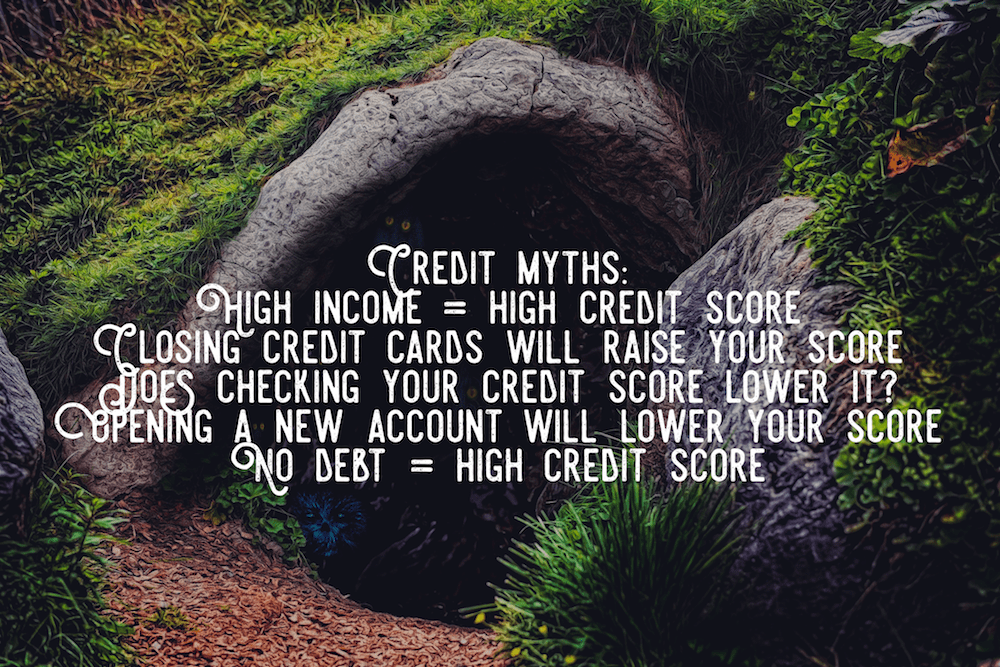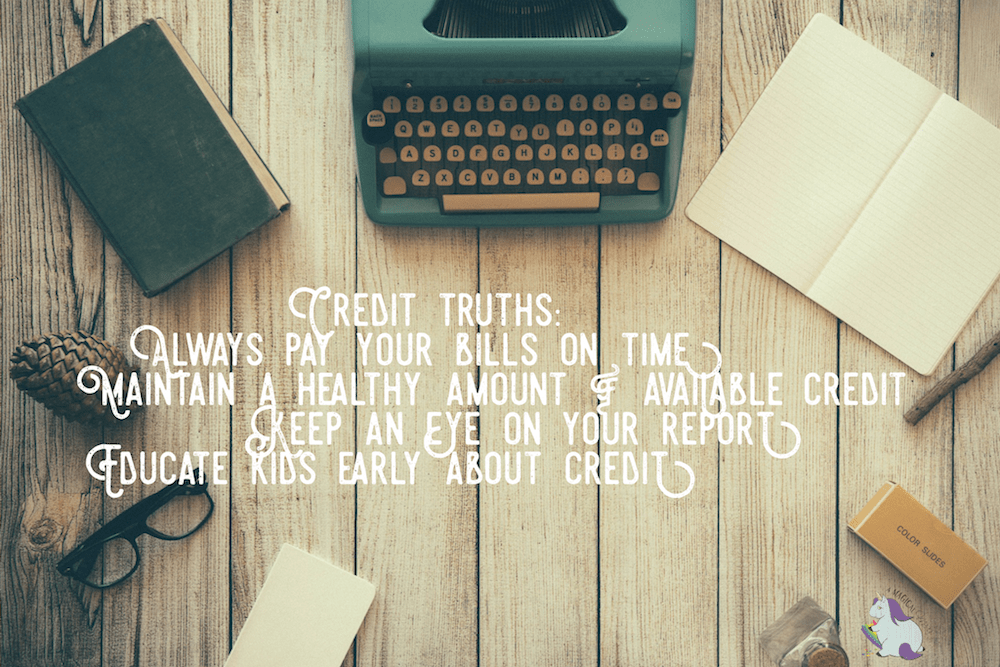5 Credit Myths Debunked – Does Checking Your Credit Score Lower It?
This post is sponsored by Lexington Law Firm.
The world of credit is confusing enough without several misconceptions being thrown into the mix. The following five credit myths are ones I believed to be true at some point. I think it’s important that everyone understands their credit score and the items on their credit report. It’s a vital part of being a financially responsible adult or teenager.

5 Credit Myths Debunked
High Income = High Credit Score
It doesn’t matter if you’re pulling in a six-figure income every month. Overspending and making late payments will negatively affect your credit score—our income bracket makes little to no difference. This is good news for those of us making smaller incomes because credit scores don’t discriminate. We have an equal opportunity to be members of the coveted 800 club.
However, having a higher income makes a lot of things easier for obvious reasons. If you have plenty of money to pay your bills, you’re less likely to make a late payment. However, as long as you practice discipline and smart budgeting, your credit score can be as high as the sky.
Closing Credit Cards Will Raise Your Score
This couldn’t be further from the truth. Closing credit card accounts can actually have a drastic negative impact on your score. If you close an account that you’ve had for many years, you basically chop off a big chapter of your credit history, which is used when determining your score. The longer your good credit history, the better it is for your score. So, if you decide to close an account, be sure it’s not one you’ve had for a long time.
To clarify, paying off an account is not the same as closing it. Paying the full balance on credit cards is something you should strive to do each month to avoid paying interest. To keep accounts open and in good standing, they should be used regularly and always paid on time.

For example, I racked up $10,000 on my Old Navy Visa card–yes, we all have fully stocked wardrobes thanks to all those points. Earlier this year I finally paid off that card. However, I’d be a fool to close the account because I’ve had it since I graduated from high school! So, I pay a couple of small monthly bills (Netflix and Google Storage) with that card and pay the full balance on time every month. This also leaves me with a big chunk of available credit, which is a great score booster.
Does checking your credit score lower it?
You can check your own credit as many times as you want without hurting it. As long as you’re using credit monitoring services to check your score and not mortgage lenders, your score won’t be affected. In fact, you should be keeping a very close eye on your report. I take a glance at mine monthly just to make sure nothing strange pops up. I know that if I ever see any marks that I don’t think belong, I can consult Lexington Law Firm and they’ll help clean up my report for a super affordable fee.
Opening a New Account Will Lower Your Score
The inquiries made when applying for new accounts could lower your score but, depending on the other factors used to calculate your score, it may remain unaffected. Opening a new account can be of great benefit if you use, don’t abuse, your available credit and always make timely payments.
No Debt = High Credit Score
A healthy amount of debt is actually required to build your credit. In order for lenders to determine your creditworthiness, they have to be able to see that you can handle debt responsibly. A good balance of debt means that you haven’t abused your spending limits and have multiple types of loans–not solely on credit cards.

As you can see, quite a few credit myths are circulating, but there are also some absolute truths to remember: Always pay your bills on time. Always maintain a healthy amount of available credit. Always keep an eye on your report. Start educating your kids early about the importance of keeping good credit.
Read Next: 12 Things I Didn’t Know Would Affect My Credit Score







